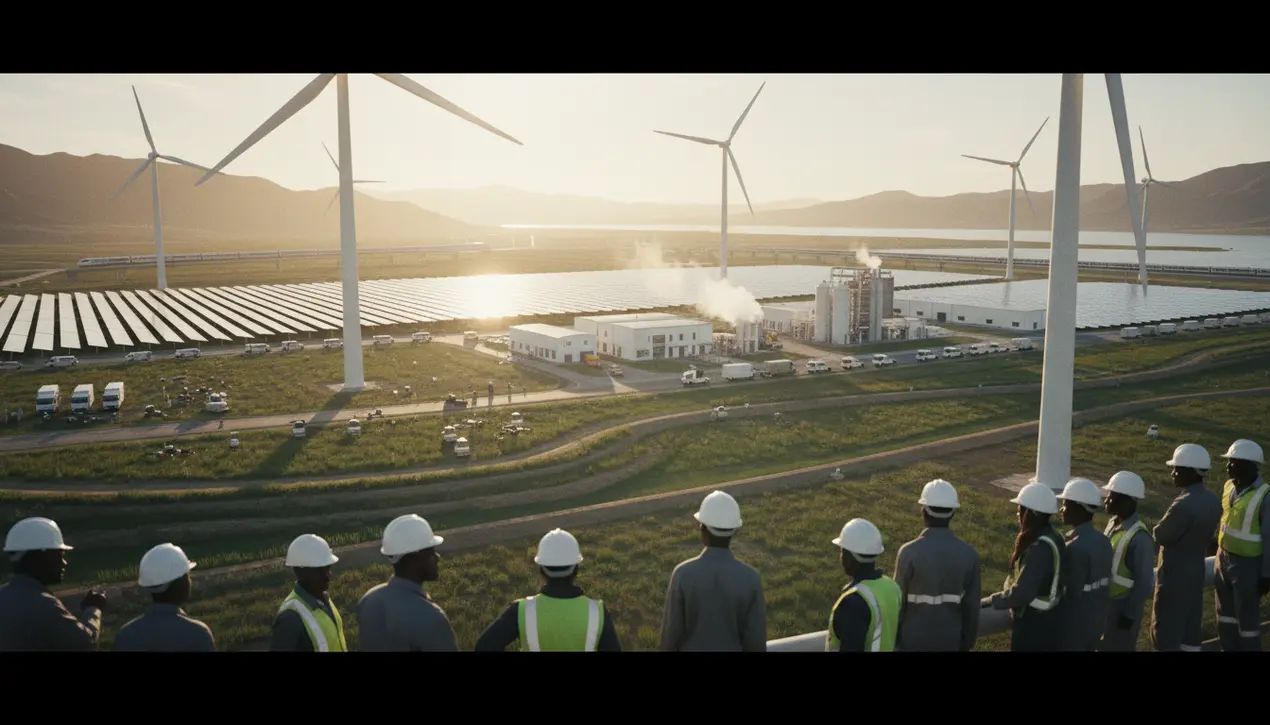
PoliticslegislationEnvironmental Laws
Africa's Path to Green Industrialization and Climate Resilience
RA
Rachel Adams
8 hours ago7 min read4 comments
The tectonic plates of global power are shifting, and in the fissures created by geopolitical fragmentation, Africa finds a long-awaited opening. For decades, the continent's developmental trajectory has been hemmed in by a rigid framework of international rules and conditionalities, often imposed by Bretton Woods institutions and Western partners, which prioritized market liberalization over strategic industrial policy.This historical constraint, while stabilizing global supply chains for the Global North, effectively limited African nations to the role of raw material exporters, locking them into a vulnerable position at the bottom of the value chain. Now, as great-power rivalries intensify and the old multilateral consensus frays, that restrictive architecture is eroding.This is not merely a diplomatic observation; it is a clarion call for action. African governments must pivot with precision and courage to seize this unprecedented window.The objective is audacious yet imperative: to catalyze higher-value-added industrial sectors—from sophisticated agro-processing and pharmaceutical manufacturing to renewable energy technology and green mineral beneficiation—that are intrinsically designed to bolster climate resilience. Consider the devastating paradox Africa faces: it contributes less than 4% of global greenhouse gas emissions, yet its economies are disproportionately crippled by climate-induced droughts, floods, and crop failures.The old development model, which would have suggested following the carbon-intensive path of the West, is now a direct route to ecological and economic ruin. Instead, the opportunity lies in leapfrogging outdated, polluting infrastructure altogether.Imagine a future where the sun-drenched Sahel powers not just local communities but entire green hydrogen economies; where the Democratic Republic of the Congo and Zambia refine their own cobalt and copper for the world's battery supply chains, rather than exporting raw ore; where drought-resistant smart agriculture becomes a major export industry. This requires a new social contract between governments and the private sector, one that directs investment towards sustainable infrastructure, prioritizes circular economy principles, and builds adaptive capacity into every facet of the economy.The African Continental Free Trade Area (AfCFTA) provides the foundational scale needed to make such green industries globally competitive. The path is fraught with challenges, including securing patient capital, navigating a more volatile world order, and resisting the siren song of short-term extractive deals.But the alternative—a continent buffeted by climate chaos while still dependent on commodity booms and busts—is unthinkable. This moment demands a visionary industrial policy that is not a copy of the past, but a blueprint for a resilient, prosperous, and self-determined African future.
#Africa
#green industrialization
#climate resilience
#development policy
#geopolitics
#economic opportunity
#featured
Stay Informed. Act Smarter.
Get weekly highlights, major headlines, and expert insights — then put your knowledge to work in our live prediction markets.
Related News
Comments
Loading comments...
© 2025 Outpoll Service LTD. All rights reserved.